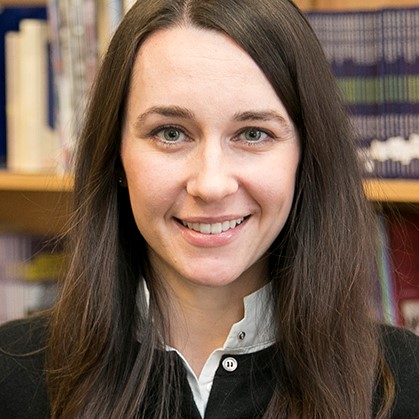PhD
| Associate Director | |
|---|---|
| AstraZeneca | |
Year entered into a non-academic position: 2020
Job highlight:
Working in a place where science is patient-oriented and based on the most innovative technology, work-life balance is encouraged and personal development is highly supported. All this gives me the right motivation to give my best.
Left academia after:
11 years of Post-doc
What’s your background?
I am an experienced in vivo neuroscientist with scientific expertise in developing in vivo models to elucidate the neural basis of compulsive drug/food seeking, as well as binge-eating disorders. I graduated in Pharmacy at the University of Padua (Italy), after completing my final 1-year undergraduate research placement at GlaxoSmithKline SpA (Verona, Italy) exploring the mechanisms regulating relapse to nicotine use. I hold a PhD in Translational Biomedical Sciences from the University of Verona, Italy and during the course of the PhD, I spent over one year as a visiting doctoral student at Professor Sarter’s Lab, at the University of Michigan (Ann Arbor, USA) to investigate the cholinergic mechanisms regulating attentional processes in vivo. In 2009 I joined Professor Everitt’s Lab, at the Department of Psychology of the University of Cambridge, to investigate neural and psychological mechanisms of the compulsive pursuit of drugs and highly palatable food. In 2016 I was appointed Senior Research Associate and Affiliated Lecturer at the Department of Psychology and in 2019 I received the NARSAD Young Investigator Grant, by the Brain & Behavior Research Foundation, to study compulsive alcohol seeking behaviour in preclinical models. In July 2020 I joined AstraZeneca as Senior in vivo Scientist and Central Nervous System (CNS) expert, in the Safety and Mechanistic Pharmacology team and in 2021 I was appointed Associate Director.
Why did you move away from academia?
I was interested in the translational application of my research. I always had collaborations/interactions with pharmaceutical companies, and I knew that at some point I wanted to experience working there. After a long post-doc I realized that I needed a change in my career and life and I took the opportunity of joining AZ.
Is there anything you miss about academia?
Research life at a large global organization may be seen as less ‘spontaneous’ as there is a very structured way of working and any study requires a lot of planning in advance and coordination between several groups.
But it is just a different, and perhaps more efficient, way of working.
I currently do not work in order to build my own line of research. Industry goals are aligned with market requirements, patient needs, scientific opportunity and environment and my projects are in line with industry goals and demand. However, this is quite challenging as it allows me to learn new things about new therapeutic areas and new drug modalities I have never worked on.
The less ‘spontaneous’ way of working and not progressing my own line of research are aspects definitely different from working in academia, but I realized that I actually do not mind learning a new way of working.
How did you get this job? Did you face any challenges when considering a move away from academia or applying for the role?
This job was advertised on the AZ website. They were looking for a CNS expert with in vivo experience. Several features they were looking for matched my expertise. The career service of the University of Cambridge helped me tailor my CV and cover letter. The interview consisted of the following parts: i) give a presentation on ‘In vivo models in CNS safety pharmacology’; ii) technical interview; iii) company’s values interview; iv) practical technical assessment. I found the interview challenging as it was very different from the academic interviews I had experienced.
What motivated you to/why did you choose the sector you transitioned into?
I was interested in translational science and I wanted to apply my CNS expertise into safety pharmacology. The job description I applied for was a perfect match.
Did you think you had the skills required for your current position before you started? Were you right?
Sometimes we do not realize that a PhD and a postdoc prepare us not only in terms of scientific knowledge, but also in terms of transferable skills.
How did your PhD prepare you for your current job? For example, what were the transferable skills that you developed during your PhD that are most relevant to your current job?
My PhD and postdoc allowed me to improve my independence (as I was in charge of my own projects and I had applied for my own funding), teamwork (as I had internal and external collaborations, I attended team project meetings, I was part of local organizing committees to organize meetings and scientific events), leadership and management (as I used to supervise undergraduate, Masters and PhD students on a daily basis and trained new lab members thus I used to efficiently coordinate several projects at the same time). Moreover in 2019 I was selected to be part of the Emerging Researcher Leadership Development Programme (University of Cambridge) to achieve an in-depth understanding of leadership in research.
Did you have any preconceptions about your sector that proved to be wrong?
I thought there was going to be less scientific talk/collaborations with academia, but actually, AZ is putting a lot of effort into establishing collaborations with academic groups to work with cutting-edge technologies.
Can you describe a typical week in your job?
My main role is to identify and evaluate undesirable effects of a substance observed in toxicology and/or clinical studies and provide CNS Safety Pharmacology expertise to support project progression across the AstraZeneca R&D Portfolio. This can be applied to different projects and therapeutic areas, meaning that I have the opportunity to interact with different colleagues / teams. Depending on the specific project, I may run pre-clinical experimental work, or I may coordinate outsourced pre-clinical experimental work. I am also involved in internal and external collaborations (with academic groups and research consortia) that are allowing me to keep publishing papers. I also contribute to the work environment, as I am in charge of organizing the monthly meetings of my department and I am currently leading a team to create a learning hub on New Drug Modalities: this has been extremely rewarding so far as it allowed me to strengthen my leadership skills, my communication, organization, and teamwork.
What is the workplace culture like? Please include comments on work-life balance, flexibility, remote working?
At the moment, we are required to work from the office at least 3 times/ week. We are required to work at least 7.5h/day and there is a certain degree of flexibility in the working time schedule, but most of the meetings are between 9 am and 5 pm. I rarely work over the weekend (and not from the office).
There is a strong culture of finding a good work-life balance, which is something I appreciated after leaving academia.
Collaborations and interactions between departments are very much encouraged and supported. In general, I find the environment very supportive and oriented to listen and make changes, according to comments and suggestions from the employees.
Do people with a PhD frequently get hired in the company/sector?
People with or without PhD get hired. The position level is adjusted to the level of experience and the education of the candidate.
What are your favourite parts of your job?
I work on several projects at the same time, it is very dynamic, and it allows me to learn new aspects of therapeutic areas I have never worked on.
What are your reflections on your career path?
I was very happy in academia and I enjoyed my time there but at some point I needed a change. I realized that I wanted to apply my knowledge and skills to a more translational kind of research and, when I had the opportunity, I thought that working for AstraZeneca was a better fit.
I do not regret any of my choices and I think that my time in academia helped me to build a strong scientific background and a strong set of soft skills that I can now apply to a different and more dynamic work environment.
Do you have any advice for current graduate students and postdocs considering a career outside of academia?
Reach out to people to learn more about the specific job features and work environment. Ask yourself the following questions:
- Does the work environment match my personality?
- Are my values fulfilled?
- What do I need to achieve to feel rewarded?
- What makes me feel rewarded?
- How important is my own intellectual ownership?
- How important is it to me to determine my own research direction?
What do you know now that you wish you’d known when exploring a transition?
I would avoid a very long post doc and I would trust the fact that
changing career path is not a failure, it is using your skills and knowledge to align yourself with your current needs and expectations.
Can you recommend any relevant resources, organisations or events that might help somebody new to the sector find out more about it?
During my postdoc I attended several career events (organized by the University of Cambridge) to know more about options outside academia. What I still find challenging is to understand what a specific job consists of, and the only way to really understand it is to hear about other people’s experiences.





